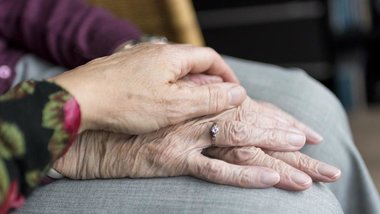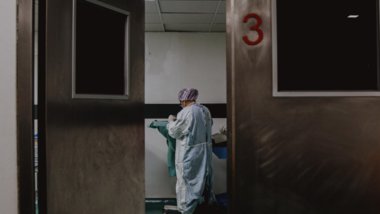Dr James Galloway, rheumatology consultant and senior lecturer, tells us how e-IMPARTS benefits remote patient consultations.
List of pages

The importance of patient and public involvement in shaping healthcare
25 March 2025
Dr Sarah Crabtree, Patient and Public Involvement/Engagement (PPIE) Coordinator for the KHP Centre for Translational Medicine, explains more about incorporating PPIE into your workflow, and shares useful resources.
News stories match your chosen filters
-
7 October 2020
-
7 October 2020News
Our recently appointed Professor of Surgery talks about his vision for King’s Health Partners’ new Surgical Academy.
-
7 October 2020News
Two of our partners have been announced as founding partners of NVIDIA’S most powerful supercomputer dedicated to healthcare.
-
7 October 2020News COVID-19
The COVID-19 Symptom Study app reveals that delirium is a key symptom of COVID-19 for the elderly.
-
23 September 2020News COVID-19
New research shows the potential for COVID-19 diagnosis based on stroke emergency scans.
-
10 September 2020News Palliative care
Read the Applied Research Collaboration South London’s blog exploring palliative and end of life care.
-
10 September 2020News
A grant from the Office for Life Sciences will support the London Medical Imaging and AI Centre for Value Based Healthcare.
-
26 August 2020News
Researchers have discovered that patients with COVID-19 who displayed higher levels of these molecules went on to become more severely ill.
-
26 August 2020News
Prof Prokar Dasgupta has been appointed as the first Professor of Surgery at King’s Health Partners.
-
12 August 2020News Blog COVID-19
We look at the experiences of professionals around the world in our Global: How I manage COVID-19 patients – meet the expert series.
-
12 August 2020Blog COVID-19
We explore key learnings from rapidly innovating a virtual visiting platform that enables families to connect with loved ones in ICU.
-
29 July 2020News COVID-19 Cancer
Research finds patients diagnosed with cancer more than 24 months ago are more likely to have severe COVID-19 infections.















